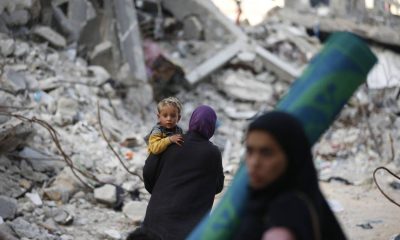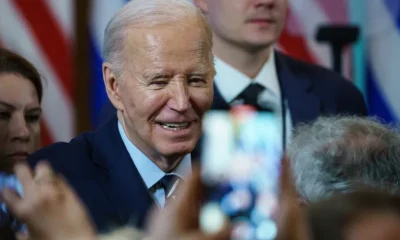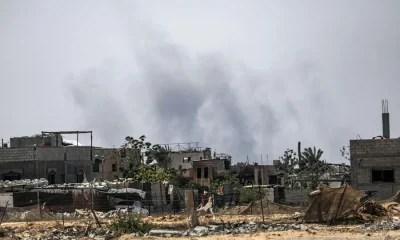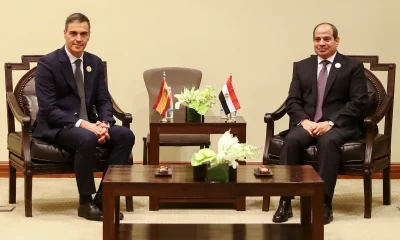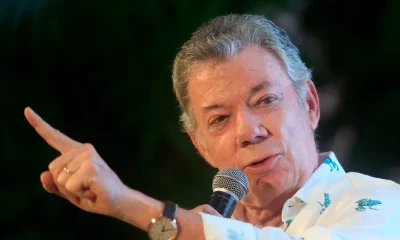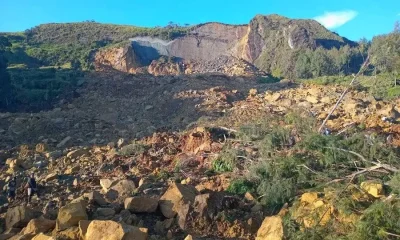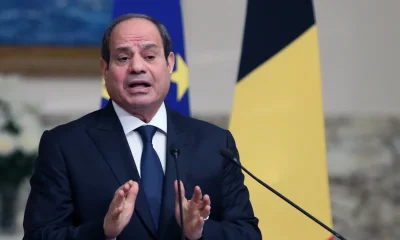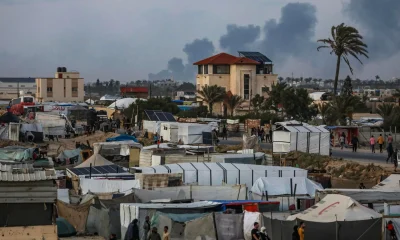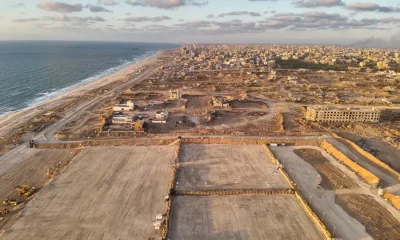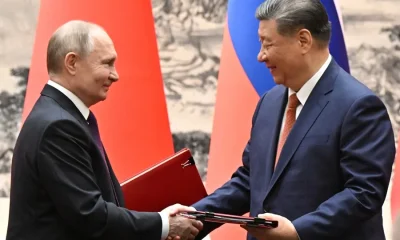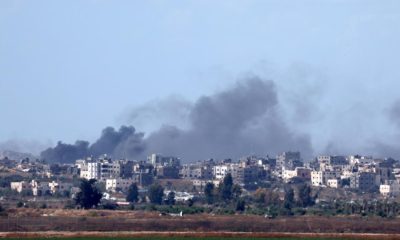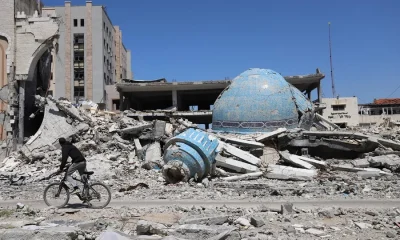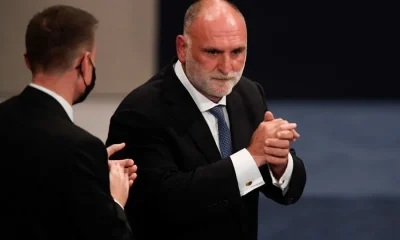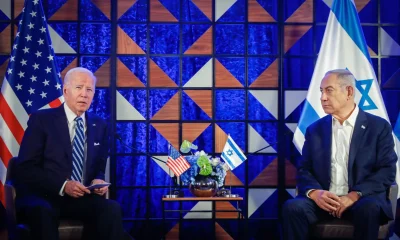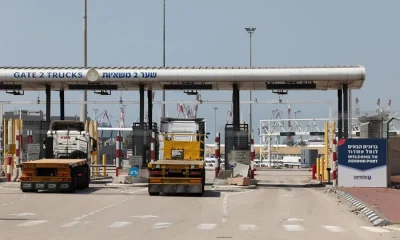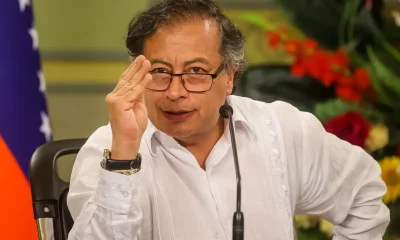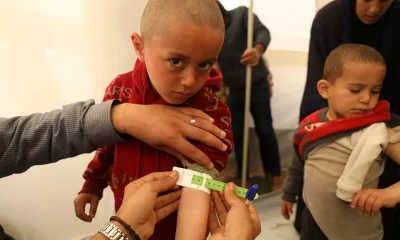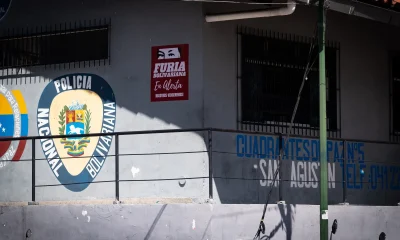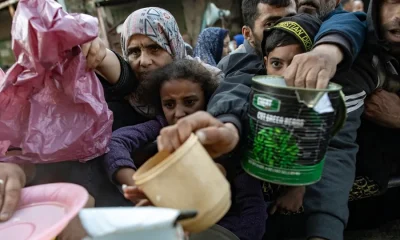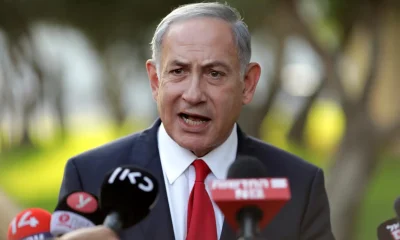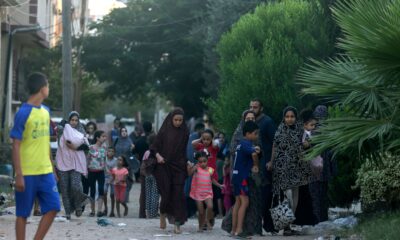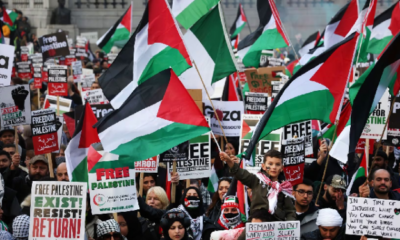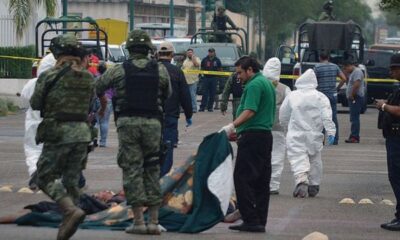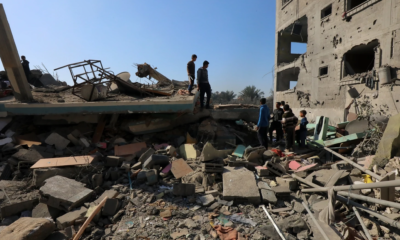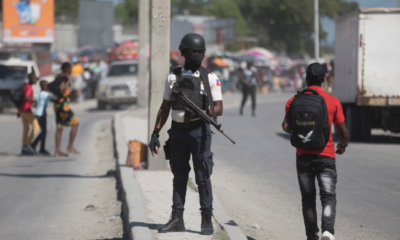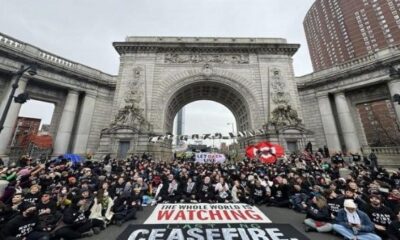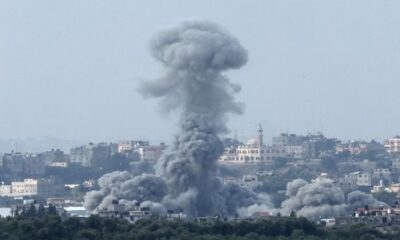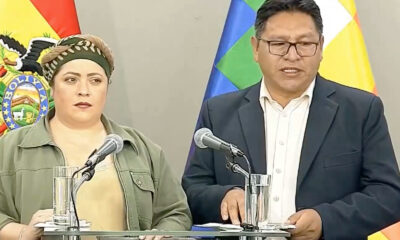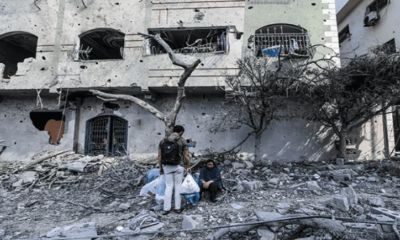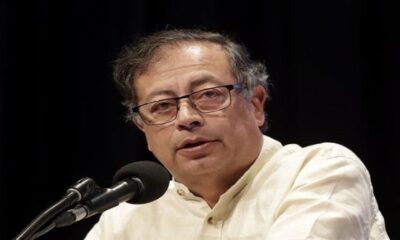International
The UN approves a resolution condemning Israel’s treatment of civilians in Gaza
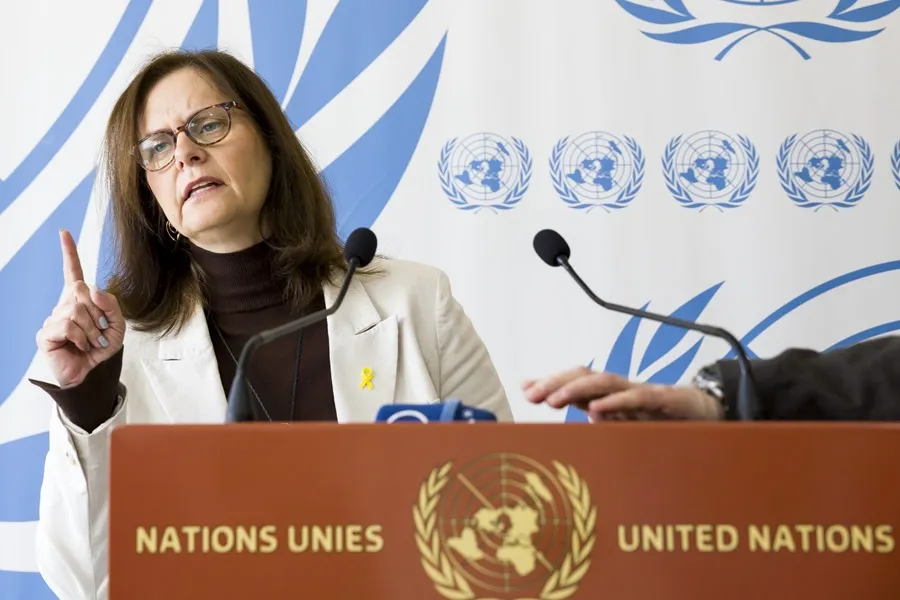
The United Nations Human Rights Council approved on Friday a resolution that condemns, among other abuses, “the practice of making the civilian population suffer hunger as a method of war in Gaza,” despite the votes against from countries such as Germany, Argentina or the United States.
The resolution was approved on the last day of the 55th session of the Council, which has lasted six weeks, with 28 votes in favor, 6 against and 13 abstentions, including those of France, India, Japan or the Netherlands.
The text also expresses “great concern” about statements by Israeli officials that “equate to incitement to genocide,” and urges the international community to stop the sale and transfer of weapons to Israel “in order to avoid further violations of international humanitarian law.”
On the other hand, the Council has adopted another resolution that reaffirms the Palestinian right to self-determination, “including its right to an independent State of Palestine.”
The resolution has been sponsored by about 70 countries, including Spain.
At least 54 Palestinians have died in the Gaza Strip in the last 24 hours, a figure that brings the total number of deaths since the beginning of the war to 33,091, according to the latest count of the Ministry of Health of the enclave, controlled by Hamas.
Of the death toll, more than 73% are women and children. Specifically, 14,500 minors have died to date, which makes this war the most lethal for childhood in years.
According to the official Palestinian agency Wafa, in recent hours artillery attacks have been recorded in large areas of the province of Jan Yunis, as well as in the eastern part of the city of Rafah, in the south of the Gaza Strip.
The Israeli Army has confirmed that it continues to operate in Jan Yunis to dismantle Hamas’ military capabilities and assured that it had eliminated several “terrorist cells.”
In addition, an intense air attack reached the vicinity of the city of Sheikh Zayed, in northern Gaza.
In the center of the Strip, Israeli artillery besieged several localities, including the Maghazi refugee camp, which also suffered air bombardment.
In addition, Israel attacked during the night several launch posts in the north of the enclave, from where yesterday rockets were fired at the Israeli cities of Ashkelon and Sderot and against the kibbutz Kfar Aza, which were claimed by Islamic Jihad.
The evacuation warnings issued by the Israeli Army to the Gazans before an attack are full of important errors that cause confusion, according to a BBC analysis released this Friday.
The British public broadcaster examined numerous material in brochures or transmitted through social networks corresponding to 26 different announcements issued since December 1.
In his study, he found notable inconsistencies, which meant that many people did not know exactly where to go.
“The warnings contained contradictory information and, sometimes, districts with incorrect names,” says the network, which has consulted experts who indicate that these errors “could violate Israel’s obligations under international law.”
The Israel Defense Forces (IDF) have rejected the results of this BBC study in a statement and assure that the alerts are only a part of their “extensive efforts to encourage the evacuation of civilians.”
International humanitarian law requires that the attacking forces warn in advance and effectively of attacks that may affect the civilian population, unless circumstances do not allow it.
An internal investigation by the Israeli Army has determined that Efrat Katz, a 68-year-old Israeli, was “probably” killed by an Air Force attack on October 7 in the Nir Oz kibutz during the attack in Hamas, when militiamen took her hostage to the Strip.
Based on the evidence captured by drones and security cameras, as well as testimonies from Air Force crews and witnesses, the examination concluded that a combat helicopter opened fire on a vehicle where “terrorists” from Hamas were traveling, in which Katz was also traveling.
“As a result of the shooting, most of the terrorists traveling in the vehicle died, and apparently Efrat Katz,” the Israeli Army said.
The examination was carried out by a designated team established under the direction of the Commander-in-Chief of the Israel Air Force, in order to examine the issue, in parallel with the in-depth examinations of all the combat incidents of October 7.
The heads of the Israeli and US intelligence services will arrive in Cairo at the beginning of next week to meet with their Egyptian and Qatari counterparts in the framework of the negotiations for a truce in Gaza, an Egyptian security source told EFE.
According to this same source, who asked for anonymity because of the sensitivity of the matter, both the head of the Mossad, Didi Barnea, and that of the CIA, Bill Burns, will arrive in the Egyptian capital at the beginning of this week to start talks with “the Qatari Prime Minister and the head of Egyptian Intelligence.”
The objective of this meeting is “to achieve an openness in the conversations with which they seek to free the hostages held by the Islamic resistance movement Hamas in Gaza.”
On the other hand, a Palestinian source told EFE that Barnea will participate in the meeting “together with the president of Shabak, Ronen Bar, and the head of hostages and missing persons in the Israeli Army, General Nitzan Alon.”
International
Police investigate deaths of Rob Reiner and wife as apparent homicide
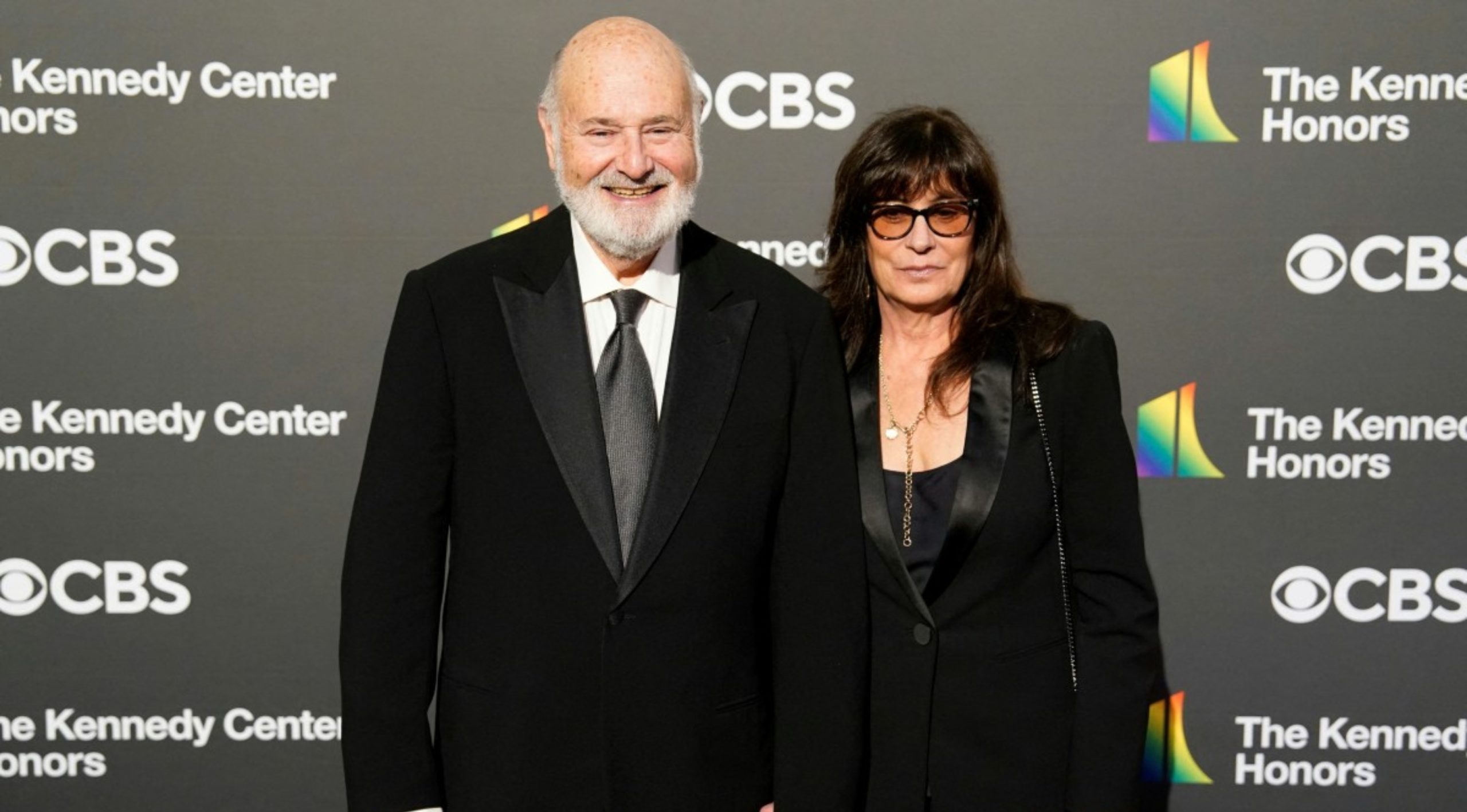
The Los Angeles Police Department (LAPD) is investigating the deaths of Hollywood actor and filmmaker Rob Reinerand his wife as an “apparent homicide,” amid a wave of tributes to the director of classics such as When Harry Met Sally.
According to U.S. media reports on Sunday, Rob Reiner and Michele Singer Reiner were found dead at their Los Angeles mansion with what appeared to be stab wounds.
Several political figures shared messages of condolence following the reported deaths of the director of A Few Good Menand his wife.
While the LAPD did not officially confirm the identities of the victims, it stated that homicide detectives were dispatched to the Reiner residence.
“At this time, no additional details are available and the investigation into an apparent homicide is ongoing,” the Los Angeles Police Department said in a statement posted on social media.
LAPD Deputy Chief Alan Hamilton told reporters that no arrests have been made and that no individuals are currently being questioned as suspects.
“I’m not going to confirm whether anyone is being questioned at this moment or not. We are going to try to speak with as many family members as we can,” Hamilton said.
CNN reported that a family spokesperson confirmed the deaths of Reiner and his wife.
California Governor Gavin Newsom, former U.S. President Barack Obama, and former Vice President Kamala Harrisissued statements expressing their condolences.
International
U.S. and Mexico Reach Deal to Address Water Deficit Under 1944 Treaty
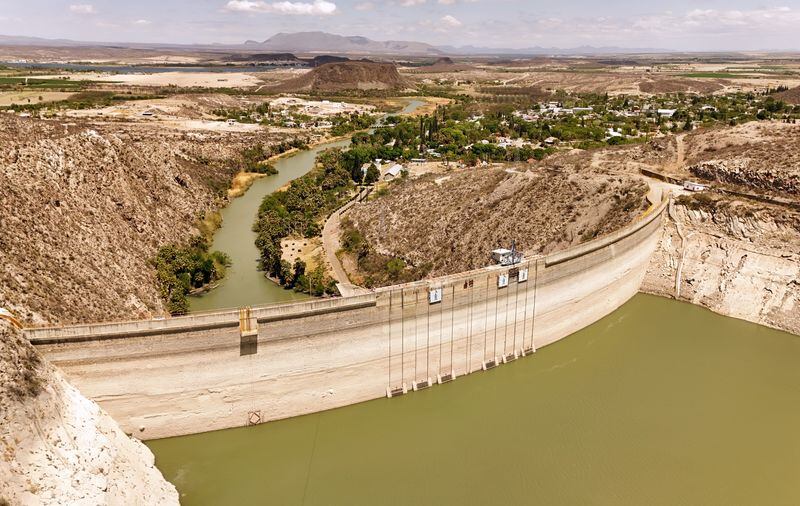
The United States and Mexico have reached an agreement to comply with current water obligations affecting U.S. farmers and ranchers and for Mexico to cover its water deficit to Texas under the 1944 Water Treaty, the U.S. Department of Agriculture said in a statement.
The department уточified that the agreement applies to both the current cycle and the water deficit from the previous cycle.
On Monday, U.S. President Donald Trump accused Mexico of failing to comply with the water-sharing treaty between the two countries, which requires the United States to deliver 1.85 billion cubic meters of water from the Colorado River, while Mexico must supply 432 million cubic meters from the Rio Grande.
Mexico is behind on its commitments. According to Washington, the country has accumulated a deficit of more than one billion cubic meters of water over the past five years.
“This violation is severely harming our beautiful crops and our livestock in Texas,” Trump wrote on Monday.
The Department of Agriculture said on Friday that Mexico had agreed to supply 250 million cubic meters of water starting next week and to work toward closing the shortfall.
Agriculture Secretary Brooke Rollins, quoted in the statement, said Mexico delivered more water in a single year than it had over the previous four years combined.
Trump has said that if Mexico continues to fall short of its obligations, the United States reserves the right to impose 5% tariffs on imported Mexican products.
Mexico’s Deputy Foreign Minister for North America, Roberto Velasco, said that a severe drought in 2022 and 2023prevented the country from meeting its commitments.
International
Several people shot in attack on Brown University campus

Several people were shot on Saturday in an attack on the campus of Brown University, in the northeastern United States, local police reported.
“Shelter in place and avoid the area until further notice,” the Providence Police Department urged in a post on X. Brown University is located in Providence, the capital of the state of Rhode Island.
U.S. President Donald Trump said on his social media platform Truth Social that he had been briefed on the situation and that the FBI was on the scene.
At 5:52 p.m. local time (11:52 p.m. GMT), Brown University said the situation was still “ongoing” and instructed students to remain sheltered until further notice.
After initially stating that the suspect had been taken into custody, Trump later posted a second message clarifying that local police had walked back that information. “The suspect has NOT been apprehended,” the U.S. president said.
-

 International4 days ago
International4 days agoWashington declares State of Emergency as atmospheric river brings severe flooding
-

 International4 days ago
International4 days agoU.S. to require five-year social media history from tourists under Visa Waiver Program
-

 International3 days ago
International3 days agoCuba battles out-of-control dengue and chikungunya epidemic as death toll rises to 44
-

 Central America3 days ago
Central America3 days agoHonduras election crisis deepens as CNE president denounces intimidation attempts
-

 Central America4 days ago
Central America4 days agoOAS and EU urge honduran political actors to respect vote results and avoid unrest
-

 International3 days ago
International3 days agoColombia says it would not reject Maduro asylum request as regional tensions escalate
-

 International2 days ago
International2 days agoSeveral people shot in attack on Brown University campus
-

 International3 days ago
International3 days agoEcuador on track for record violence as homicides hit highest level in Latin America again
-

 International4 days ago
International4 days agoSix ecuadorian soldiers jailed pending trial for alleged extrajudicial execution
-

 International2 days ago
International2 days agoU.S. and Mexico Reach Deal to Address Water Deficit Under 1944 Treaty
-

 Central America12 hours ago
Central America12 hours agoPanama seizes over three tons of drugs hidden in Caribbean port container
-

 International4 minutes ago
International4 minutes agoPolice investigate deaths of Rob Reiner and wife as apparent homicide
-

 Central America7 minutes ago
Central America7 minutes agoOAS urges swift recount in Honduras as election results remain uncertain

























